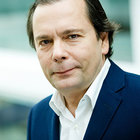Sustainability goals... is the window of opportunity for hotels closing?
10 experts shared their view
As we enter a decisive decade for sustainability, is the window of opportunity for hotels closing?
Following a decade of growth which brought jobs and fostered local and regional development, the tourism and hotel industry has repeatedly outperformed the global economy.
More than 3,000 new hotels will open their doors in 2020 alone. However, the industry is also responsible for nearly one-tenth of all carbon emissions globally, with the hotel sector accounting for almost a quarter of all tourism emissions.
Under the Paris Agreement on Climate Change, the hotel sector must reduce its greenhouse gas emissions per room per year by 66 percent by 2030 and 90 percent by 2050 compared to 2010 (ITP, 2017). The technology required to decarbonize the industry is available now.
How do you see the calls for more sustainability within your organization and, in particular, our responsibility to bring about a carbon-neutral future?

This viewpoint is co-created with IDeaS a SAS company
More information
As an active member of the International Tourism Partnership and in alignment with the UN Sustainable Development Goals, Radisson Hotel Group (RHG) has taken a global commitment to focus on carbon, water, youth employment and human rights. We recognize the hotel industry must reduce its absolute carbon emissions by 66% by 2030 and 90% by 2050 to ensure that growth in the sector is sustainable.
RHG actively strives to reduce our hotels' carbon footprint by reducing demand for energy from CO2-intensive sources and increasingly making use of renewable energy sources. That's why we partner with innovative companies that strive to provide clean, renewable energy from alternative sources. In 2018, 34 hotels in the Group operated on 100 percent renewable energy, including all hotels in the Nordics and France. On average, 17.2 percent of the energy used in our hotels in EMEA comes from renewable sources.
Radisson Hotel Group is committed to operating our worldwide hotel portfolio with the lowest possible energy and carbon footprints. We achieve this by implementing Think Planet efficiency principles in our standards, and through close cooperation with property owners, builders, and architects. We also use eco-modeling tools and certifications such as EDGE, BREEAM and LEED both in mature and emerging markets. Best practices and innovations such as the hydrogen fuel cell in our Radisson Blu Hotel, Frankfurt and first large-scale commercial Hybrid Voltaic project at the Park Inn by Radisson Foreshore in Cape Town, are hugely important to drive sustainable change in the industry further.
Additionally, we bring Carbon Neutrality to our guests. Radisson Meetings represents our commitment to deliver a personal, professional and memorable service to guests, and to respond to changing market trends and expectations. But what's more all Radisson Meetings are 100% carbon neutral. RHG is the only hotel group worldwide to automatically offset any carbon footprint at no cost to our customers. To do this, we have teamed up with First Climate, one of the largest carbon offsetting organizations in the world. For each meeting, the carbon footprint is calculated and then offset through First Climate by supporting certified projects that invest in renewables in Turkey and the USA or have a positive sustainable development impact in Peru, Kenya, and India.
In the tourism & travel industry we are already making SDG 17 a reality in organizations such as WTTC and ITP. I believe that cross-sectoral partnerships combining asset owners, finance, renewable energy providers and hotels in a location-based approach can be a powerful force for good towards building a better future for all with a net-zero carbon future in sight by 2050.
As leaders in the hospitality industry, we all have a responsibility to act now for the future.


